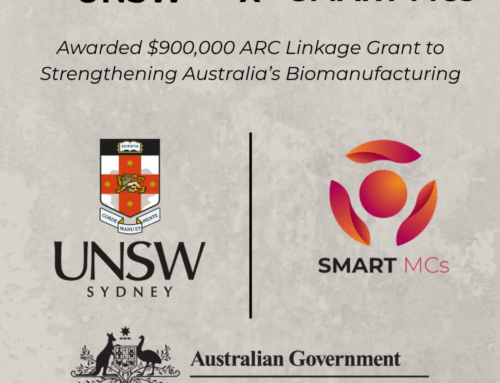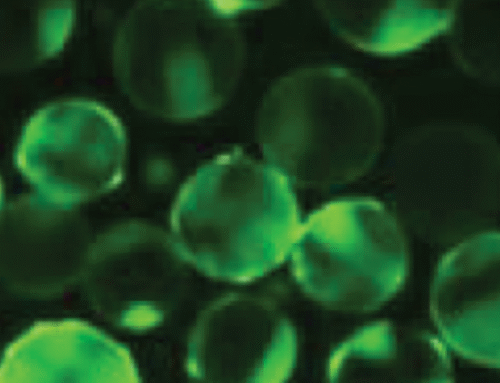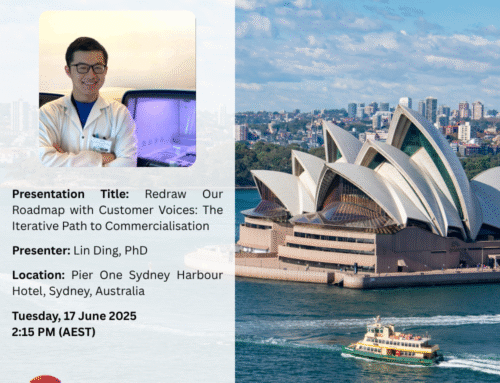
Recent studies have identified the increasingly prevalent advantages of microcarriers when used in the production of Extracellular Vesicles (EVs), in particular, exosomes. These are used for intercellular communication, cell-to-cell signalling, tissue repair and various other purposes. This article gives a summary of these respective papers, both published within the past few years, which all point to the increasing value microcarriers play in scaled production of exosomes.
Extracellular Vesicles (EVs) are defined as lipid-bound vesicles secreted by cells, which serve as important mediators in intercellular communication. Among EVs, exosomes, which are defined as small, naturally occurring vesicles used for messengers in intercellular communication, allow cells to exchange information and influence their behaviour tumour metabolism, and regenerative processes. Exosomes have found to play a role in areas like tissue healing, immune responses, and treating diseases such as cancer. Scientists argue EVs offer significant clinical potential due to their involvement in various physiological processes and their molecular composition reflecting cell status. Exosomes in particular are being explored as an alternative to stem cell therapy for tissue and organ restoration.
In a recent study conducted by Escobar Ivirico J. L. & Sha M in September 2020, the efficiency of exosome and cell proliferation was measured between small and large scale bioreactors. These scientists employed microcarriers for cell culture support, paired with a twin bioreactor as a system control device and single use vessels as bioreactors for human iPSC derived MSC exosomes production. The study also assessed cell growth, viability, metabolic activity, and exosome abundance at different time points. Successful isolation, purification, and quantification of MSC-produced exosomes was achieved, maintaining a favourable physiological environment. The study demonstrated the production of MSC-derived exosomes using twin bioreactor control systems and single-use vessels. Manipulating the cell culture environment facilitated rapid adhesion and proliferation of human iPSC-derived MSCs on microcarriers. Increasing cell inoculation densities resulted in higher production of MSC-derived exosomes over time. While maximum exosome production levels have not been optimised in these preliminary studies, the observations provide guidance for improving isolation, purification, and scale-up protocols of MSC-derived exosomes. The study concluded that incorporating microcarriers in a bioreactor-based control system enabled rapid adhesion and proliferation of human iPSC-derived MSCs on microcarriers’ surface.
Another recent article published by Mar Casajuana Ester and Richard Day in February 2023, identified the benefits of microcarriers in the process of producing EV exosomes. This paper argued utilising 3D culture methods enables the efficient expansion of cells, reducing overall time and cost. “Both 2D and microcarrier-based 3D culture-derived EVs induced neurite growth, but microcarrier-based 3D-culture-derived EVs showed a significant increase in neurite length in trigeminal ganglia (TG) neurons when compared to 2D EVs in vitro.” (Casajuana E et. al.) Moreover, cells cultured in 3D retained their phenotype, with several studies indicating 3D-cultured EVs possess enhanced clinical potential. Furthermore, 3D culture techniques facilitate the delivery of EVs, enabling sustained release and improved retention at the target site.
Microcarriers have been shown to ensure significant benefit for scaling up production of exosomes for usage in research and production operations. To learn more about our microcarrier products, visit our knowledge centre here. To get in touch with our experts, you can email us: info@smartmcs.com.au.
References
Cell Culture Dish, (Oct, 2020) Successful Exosome Production Using Stem Cell Culture in Stirred Tank Bioreactors, Articles
Escobar Ivirico J. L. & Sha M (Sept. 2020) Stem Cell Exosome Production on the SciVario twin, a Flexible Controller for Your Bioprocess Needs, Application note No. 435, Eppendorf
Casajuana E. & Day R., (Feb, 2023) Production and Utility of Extracellular Vesicles with 3D Culture Methods. Pharmaceutics 2023, 15, 663.






Leave A Comment